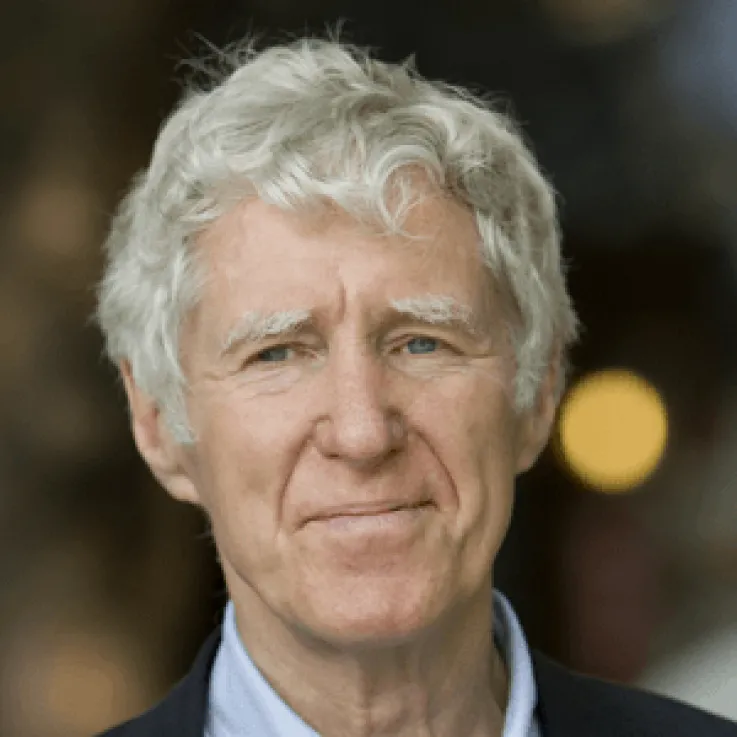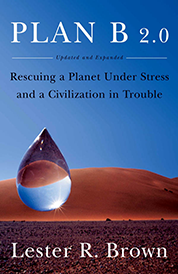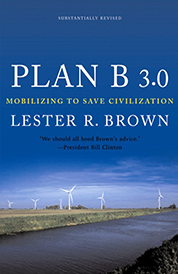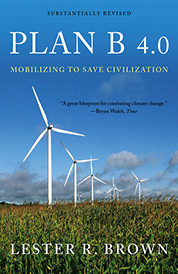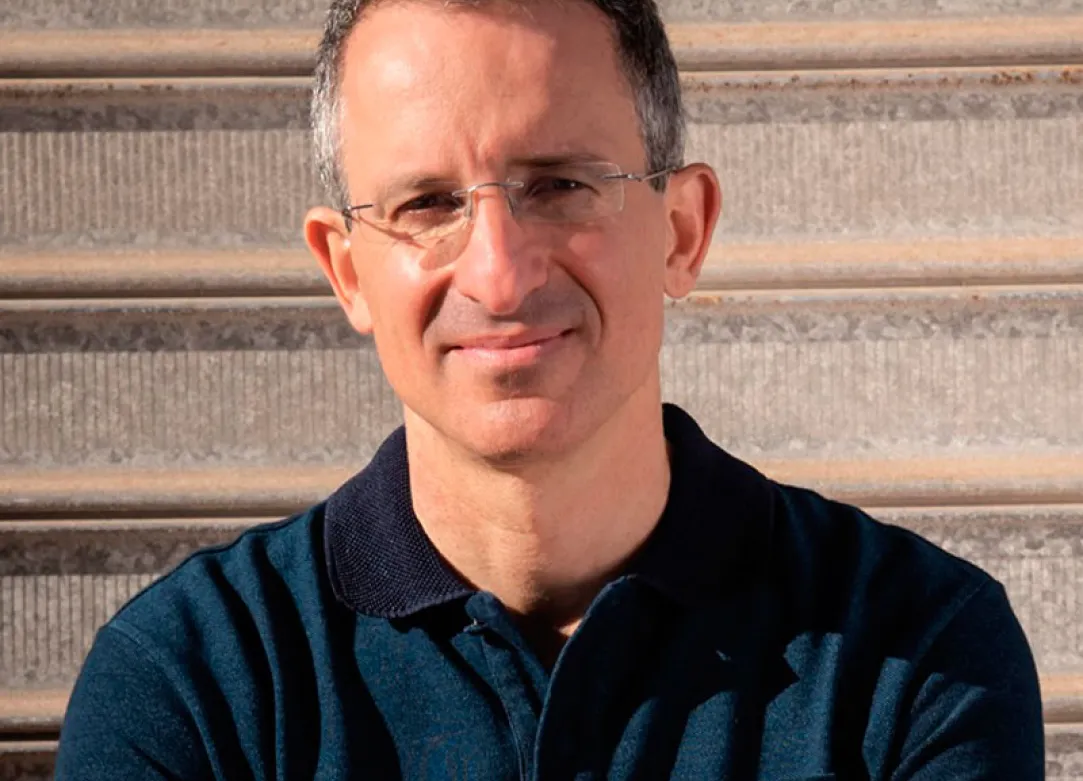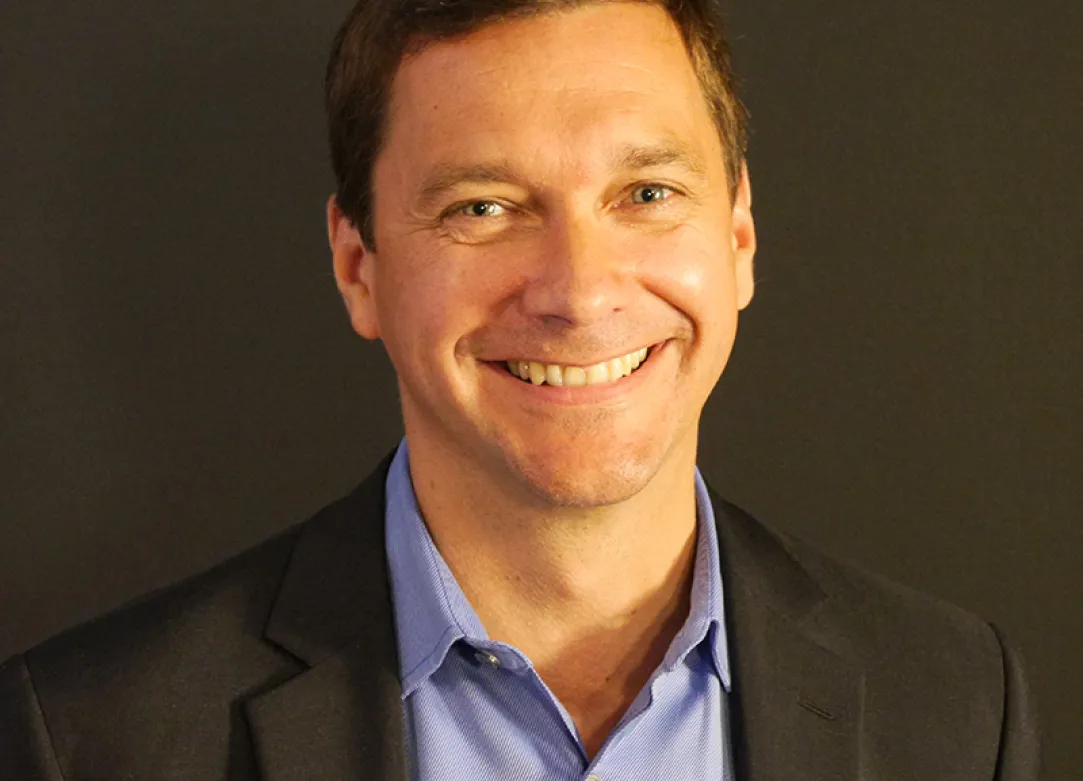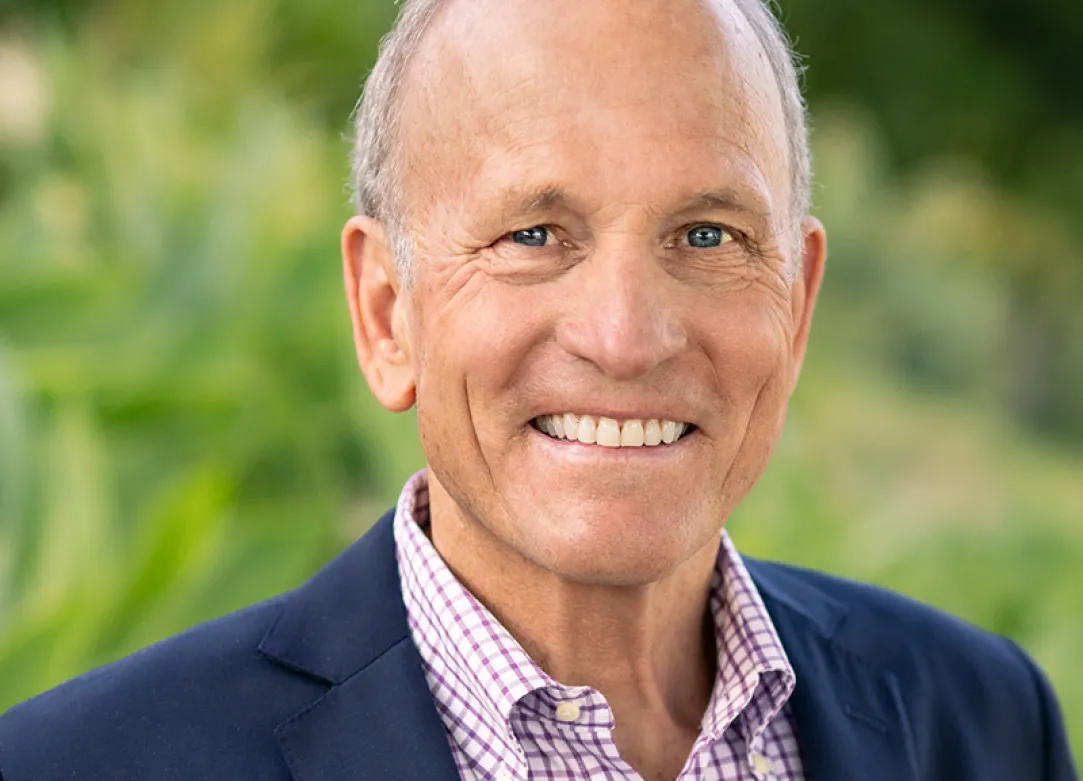Lester Brown, named by The Washington Post as "one of the world's most influential environmental thinkers of our time", advocates for the establishment of a new environmental-friendly economy.
Brown started his career as a farmer, growing tomatoes in southern New Jersey with his younger brother during high school and college. He spent six months living in rural India where he became intimately familiar with the food and population issue. In 1959 he joined the U.S Department of Agriculture's Foreign Agricultural Service as an international analyst.
In 1964 he became an adviser to Secretary of Agriculture Orville Freeman on Foreign Agricultural Policy, and in 1966 was appointed Administrator of the department's International Agricultural Development Service. In 1969 Brown left the government to help establish the Overseas Development Council.
With support of the Rockefeller Brothers Fund he founded the Worldwatch Institute, the first research think-tank devoted to the analysis of global environmental issues. While there he published numerous environmental essays and magazines including the Worldwatch Papers, State of the World, World Watch Magazine, Vital Signs, and the "Environmental Alert" book series.
Brown has authored or co-authored 50 books, including the "Plan B" series. His controversial best-seller "Who Will Feed China?" challenged the official view of China's food prospect, spawning hundreds of conferences and seminars. In 2001 he founded the Earth Policy Institute to provide a vision and road map for achieving an environmentally sustainable economy.
Brown is the recipient of 24 honorary degrees, a MacArthur Fellowship, the 1987 United Nations' Environment Prize, the 1989 World Wide Fund for Nature Gold Medal, the 1994 Blue Planet Prize for his "exceptional contributions to solving global environmental problems", the Presidential Medal of Italy, and the Borgström Prize by the Royal Swedish Academy of Agriculture and Forestry. He is also an honorary Professor of the Chinese Academy of Sciences.
Brown has a degree in Agricultural Science from Rutgers University, a MD in Agricultural Economics from the University of Maryland and a MD in Public Administration from Harvard University.
